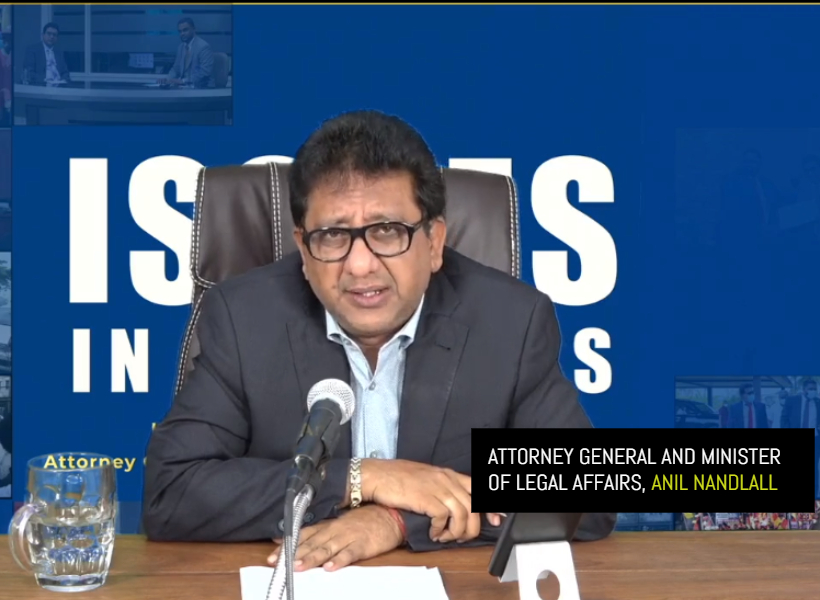Norton pours cold water on Ali’s call for probe into Su-gate scandal
Jul 13, 2022 -- Source -- Kaieteur News Online -- https://www.kaieteurnewsonline...nto-su-gate-scandal/
Kaieteur News – Opposition Leader, Aubrey Norton does not believe that the Guyana Police Force (GPF) should probe the allegations of corruption and bribery that were leveled against the country’s Vice President, Bharrat Jagdeo, in the release of a damning documentary by Vice News.

Opposition Leader, Aubrey Norton
According to Norton, an independent investigation should be conducted, as the Police Force is politicised and controlled by the People’s Progressive Party (PPP) government. He was at the time responding to a statement made by President Irfaan Ali who said on Monday that the allegations should be probed. The Head of State told reporters, “Any allegations against a system has to be taken seriously…what is clear is that there are some people there who are saying that they are involved in such activity if you look at the video…that definitely requires an investigation. It’s a no-nonsense! It’s a no-nonsense and I am hoping that the relevant security and the relevant agencies are looking at this because it is clear that someone said that they are involved so definitely they will be looking at that.”
The Leader of the Opposition further stated that Mr. Jagdeo must be sent home to allow an unhindered process. He argued, “what little faith the people were willing to invest in the PPP has now been wrecked by allegations of corruption in the Su-gate affair. The President’s call for law enforcement to investigate Jagdeo rings hallow. In a democratic society, Jagdeo must be fired to pave the way for an independent investigation. The President could only be taken seriously if he fires the second Vice President and he invites independent and credible investigators to deal with the allegations of bribery and corruption and allow the law to take its course.”
Norton said it was important to note that recent polls have confirmed that the public has simply lost trust in the country’s institutions such as the GPF and the Guyana Elections Commission (GECOM). Insisting that President Ali’s comments are “utter garbage” the Opposition Leader reasoned that the GPF has become an arm of the government, no longer carrying out its functions in an independent manner.

President Irfaan Ali
“President Ali’s comments that they don’t intervene in the police and that law enforcement should take its course when it comes to the allegations against the second Vice President, utter garbage! The PPP intervenes in the Police Force daily. The PPP does not allow the Guyana Police Force to operate as an independent institution seeking to enforce law etcetera. Any democratic society in the world, if the kind of allegations are made against a senior government official the first step that the government should take is to fire that person. Remove them from office. How do you leave somebody like the Vice President in office as powerful as he is and then ask the police who live in fear, who you control and dominate, to investigate? You are by the very act of not firing the Vice President saying to the police, “aye don’t touch he, don’t get out of hand” because he has the power still to deal with the policemen them that we are talking about, so the whole thing is a charade,” Norton told the media.
He added, “It is compounded by the fact that you are asking the very Police Force that you know is corrupt, that you know is politicised to investigate corruption. Isn’t that another case of charging Caesar to be tried by Caesar and putting cat to watch milk? That is in essence what you are doing, so it’s a colossal joke.”
Recently, a new Vice News documentary surfaced in which allegations of money laundering were included. In the 24 minute documentary from its undercover mission in Guyana and in which a Chinese national was seen on a hidden camera explaining how he is able transfer large sums cash into the country, undetected from the relevant authorities and tax free.
Vice News’ journalist Isobel Yeung, and a Chinese man whose name was given as “Chan” had entered Guyana and posed as individuals looking to invest in the country. Chan reportedly posed as a Chinese businessman and Yeung acted as his secretary.
According to the documentary aired, they were introduced by an elite circle of Chinese businessmen in the country, to Su Zhirong, a suspected “middleman” who allegedly negotiates deals between potential investors and the government of Guyana. Su told them that he was in a position to help with arranging a deal, because of his close ties with Jagdeo. Su was identified as a tenant of the Vice President but also related to the undercover journalist that he works as an agent for Jagdeo, in negotiating deals and collecting bribes for such transactions. Jagdeo has denied the allegations and threatened to sue Su.

Vice President, Bharrat Jagdeo

Su Zhirong






